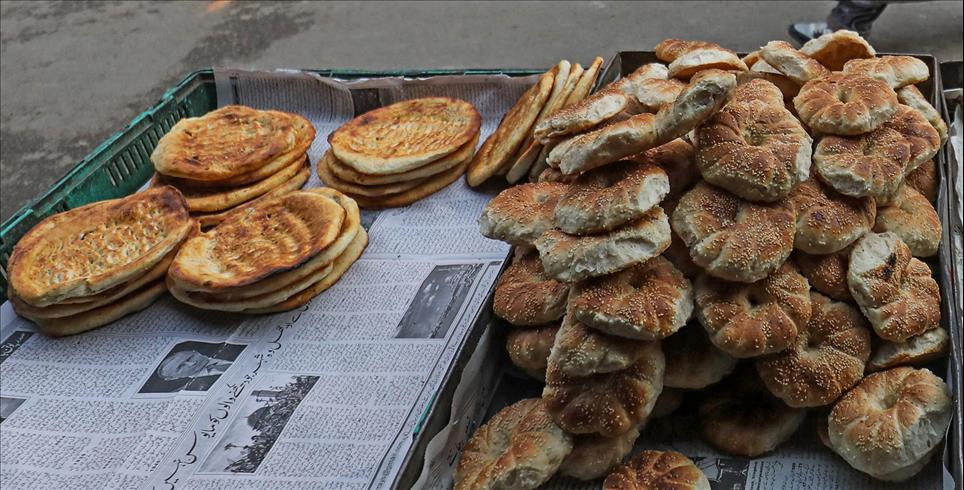
Kashmir Kandur's Bread Is Now Costlier
ADVERTISEMENT
For decades, Kandar Choet has been an affordable and nutritious option for Kashmiri families. Priced reasonably, it was a breakfast staple. Yet, the recent price surge, with a single roti now costing significantly double than before, has caused frustration among consumers. The primary reasons sighted by roti makers to this price hike include:
1. Increased Cost of Ingredients: The prices of wheat flour, oil, and other essentials have surged due to inflation.
Read Also 'Kandar Tsout' Prices Temporarily Revised: Govt Traditional 'Baking Roti' Becomes Costlier, Locals Call For Govt Intervention2. Rising Fuel Prices: With higher costs of firewood and other fuels required for tandoors, kandars are left with no choice but to pass on these expenses to consumers.
3. Transportation Costs: The transportation of raw materials, especially to remote areas of Kashmir, has become costlier due to increasing fuel prices.
Inflation Beyond Kandar Choet
The price hike in Kandar Choet is only one facet of the inflationary wave sweeping across the region. Essential goods, including vegetables, dairy, and meat, have seen unprecedented price increases. For instance:
Common vegetables for daily use have witnessed price spikes of over 30% in recent years.
Milk and dairy products, integral to Kashmiri households, have also become more expensive due to rising fodder costs and supply chain issues.
Lamb, meat and chicken, staples for special occasions, are now unaffordable for many middle-class families.
The Hype Around Kandar Choet Prices
The hike in Kandar Choet prices has sparked debates across social media platforms, with memes, videos, and discussions highlighting the financial strain on households. This hype underscores the symbolic value of Kandar Choet in Kashmiri culture-it is not just food; it is a representation of tradition and identity.
The inflation in essential goods has put immense pressure on the average family in Jammu and Kashmir. Many households now have to make tough choices, cutting back on certain items to manage expenses. The rise in food prices is also impacting the dietary habits of people, forcing some to turn to less nutritious alternatives.
Way Forward
While inflation is a global phenomenon, localized measures can help mitigate its effects in Kashmir:
1. Subsidies on Essentials: Government intervention to subsidize essential commodities can provide relief to struggling families.
2. Support for Kandars: Providing financial aid or subsidies on fuel and raw materials for kandars could stabilize Kandar Choet prices.
3. Efficient Supply Chains: Streamlining transportation and distribution networks can reduce the costs of goods reaching markets.
4. Awareness and Cooperation: Consumers and producers must work together to ensure fair pricing and minimize wastage.
Conclusion
The hike in Kandar Choet prices is a microcosm of the larger inflationary trends impacting Kashmir. While the hype surrounding it may seem exaggerated, it highlights the frustration and concern of people grappling with rising costs of living. Addressing these challenges requires collective effort and targeted policies to ensure economic stability and the preservation of cultural staples like Kandar Choet.
- The author is a PG in Biotechnology and is Administrator Maryam Memorial Institute Pandithpora Qaziabad. He tweets @IkkzIkbal
Follow this link to join our WhatsApp group : Join Now
| Be Part of Quality Journalism |
| Quality journalism takes a lot of time, money and hard work to produce and despite all the hardships we still do it. Our reporters and editors are working overtime in Kashmir and beyond to cover what you care about, break big stories, and expose injustices that can change lives. Today more people are reading Kashmir Observer than ever, but only a handful are paying while advertising revenues are falling fast. |
| ACT NOW |
| MONTHLY | Rs 100 | |
| YEARLY | Rs 1000 | |
| LIFETIME | Rs 10000 | |
CLICK FOR DETAILS

Legal Disclaimer:
MENAFN provides the information “as is” without warranty of any kind. We do not accept any responsibility or liability for the accuracy, content, images, videos, licenses, completeness, legality, or reliability of the information contained in this article. If you have any complaints or copyright issues related to this article, kindly contact the provider above.






















Comments
No comment